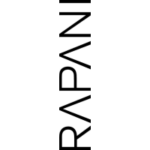-
What is the legal definition of gambling?
Law no. 16/2001 (as amended by Law no. 7/2022) governing the operation of casino games of chance in Macau (known as the “Gaming Law”), is the most relevant gaming statute in Macau, and includes important definitions such as:
1) Games of chance – those in which the result is contingent since it depends exclusively or mainly on the players’ luck.
2) Interactive games – those in which:
a) a money prize or another value is offered or may be won according to its respective rules;
b) a player enters or participates in the game through remote communication methods, and makes, or agrees to make, payments in money or another value; and
c) the game is equally offered or approved as a game of chance or as an electrical or mechanical game, in a Macau casino.
(This definition encompasses online gaming).
3) Pari-mutuel betting – a system for betting on animal racing or sports events, in which the winners’ share the total bets among themselves, after deduction of commissions, fees and taxes, proportionally to the amount of each individual bet.
4) Publicly offered operations – those in which the hope of winning depends exclusively on luck, such as lotteries, raffles, tombola and draws.
Law no. 12/87/M (governs lotteries) defines instant lotteries as those whose prizes are totally or partially known upon issuing the respective tickets.
Other than these, recent Law no. 20/2024 (combating illegal gaming crimes), enacted in October 2024, stipulates that, for the purposes of sanctioning unlawful gaming, “online games of chance or pari-mutuel betting” are games of chance or pari-mutuel betting using any system, device or equipment that allow the production, transmission or storing of documents, data or information, when performed at a distance, through electronic, informatics, telematic or interactive means, or any other means, regardless of whether or not said systems, devices or equipment are in Macau.
-
What legislation applies to gambling? Please provide a summary of the legal/regulatory framework.
Gaming in Macau is considered an activity reserved to the Macau SAR government, which may decide to allow private entities or individuals to operate the same. The mechanism chosen is to enter into concession contracts with companies for the operation of games of chance in casino, lotteries, instant lotteries, sports betting, and, historically, horse racing and greyhound racing. On the other hand, gaming promoters operate under licenses and manufacturers/distributors of gaming machines, equipment and systems operate under authorizations.
There are a number of statutes applicable to gaming in Macau. In addition to the abovementioned Gaming Law, the main laws, regulations and orders/decisions are the following:
- Administrative Regulation no. 26/2001 (as amended by Administrative Regulations no. 34/2001, no. 4/2002 and no. 28/2022), which governs the public tenders for the award of concessions for operations of games of chance in casino;
- Law no. 16/2022, which regulates the operation of games of chance in casino, complemented by Administrative Regulation no. 55/2022;
- Law no. 7/2024, which sets forth the regime for the granting of credit for games of chance in casino;
- Law no. 10/2012 (as amended by Law no. 17/2018), governing the entry into casinos for gaming and work purposes;
- Law no. 12/87/M, setting forth the rules for the operation of instant lotteries;
- Executive Orders no. 20/2005 and no. 67/2018, which approve sports betting regulations regarding basketball and football, respectively (complemented by the Order of the Secretary for Economy and Finance no. 38/2019, which regulates placement of sports bets, including online);
- Administrative Regulation no. 26/2012, regulating the supply and requirements of gaming machines, equipment and systems;
- Executive Order no. 163/90/M, which approves the official regulation of horse racing and pari-mutuel betting (complemented by the Order of the Secretary for Economy and Finance no. 63/2003, which allows and regulates online betting for horse racing purposes);
- Law no. 20/2024, on combating illegal gaming crimes.
Further to these main statutes, there are several governmental orders, orders and decisions on ancillary aspects, such as taxation, special contributions for the benefit of Macau, security deposits required from concessionaires and other licensed companies/individuals, number of gaming tables per concessionaire and their minimum expected revenue, number of gaming promoters per concessionaire, and commissions payable to gaming promoters.
On the other hand, companies and individuals operating in the gaming industry are subject to the supervision of its regulatory body, the Gaming Inspection and Coordination Bureau (known by its Portuguese acronym, “DICJ”), which issues binding instructions.
-
Which body/ies regulate gambling?
The Macau SAR Chief Executive has competence to regulate and supervise the gaming industry. It is also competent to sign concession contracts and exercise certain prerogatives expressly granted to the same under those contracts and the Gaming Law.
Most of the Chief Executive’s general competences vis-à-vis gaming are delegated to the Secretary for Economy and Finance. The Secretary, in turn, has certain direct competences granted under the concession contracts and the Gaming Law, and while certain are exercised directly, others are exercised through a dedicated organism under its purview – the DICJ.
Ancillary aspects of gaming companies’ operations are also supervised by the Financial Services Bureau and the Monetary Authority.
-
Are licences available? If so: a) What is the duration of a licence? b) What types of licences are available? c) Are there different types of licences for B2C and B2B operators? d) Do software suppliers need to be licensed?
As briefly mentioned, above, gaming industry players operate under concession contracts (casino gaming operators – limited to six, all of which are currently granted –, lotteries, and sports betting), licenses (gaming promoters, subject to annual limitations) and authorizations (casino management companies, as well as manufacturers/distributors of gaming machines, equipment and systems).
a. What is the duration of a licence?
Current concession contracts for the operation of games of chance in casino have a term of ten years, renewable for up to three additional years under exceptional circumstances (previous contracts with the same concessionaires had terms of 20 years, renewable for up to five additional years).
The concession contracts for Chinese lotteries, instant lotteries and sports betting are currently being renewed for successive one-year periods.
Licenses for gaming promoters (and their collaborators’ authorizations) are valid for one-year terms, renewable for equal periods.
Casino management companies’ authorizations are valid for the term of the management contract entered into with the relevant casino gaming concessionaire.
Authorizations granted to manufacturers/distributors of gaming machines, equipment and systems are not subject to statutory expiry terms, although the authorized companies are subject to mandatory suitability verification procedure every six years.
b. What types of licences are available?
Concession contracts, licenses and authorizations, as mentioned above.
c. Are there different types of licences for B2C and B2B operators?
Online gaming is not permitted in Macau, and therefore typical online B2C and B2B issues (such as hosting) are not applicable locally.
In any event, allowed B2C operations (offering of gaming products to the public) are subject to concession contracts, whereas allowed B2B operations (supply of gaming promotion services, casino management services, or gaming equipment to the concessionaires) are subject to either license or authorization.
d. Do software suppliers need to be licensed?
Gaming software and programming associated to gaming equipment are considered part of the latter, and their manufacturers and distributors are subject to authorization as mentioned above.
-
Are any types of gambling products prohibited?
Pursuant to Macau regulations, all gaming products are subject to approval by the DICJ before being supplied locally (and lists of approved products are disclosed annually).
Approval depends on compliance with several requirements including (i) compliance with the technical standards issued by the DICJ (there are different sets of technical standards for products such as electronic gaming machines, electronic gaming tables, dealer-operated electronic table games, automatic card dealer shoes, and gaming kiosks), (ii) the submission of a list of specialized authorized technical staff (the only ones who may install, maintain, repair, program, adapt, modify and provide assistance in relation to the products), and (iii) submission of a certificate issued by an authorized laboratory confirming that the product may be used in Macau (ensuring the product works properly, is safe, suitable, and may be audited).
-
What is the headline application procedure? Please include any eligibility and other application requirements, including approximate application costs and any need to establish a local presence.
Casino Gaming Concessionaires
The award of concession contracts for operations of casino games of change entails a public tender (governed by the abovementioned Administrative Regulation no. 26/2001).
Each tender opening document may establish certain key commercial aspects, such as the number of contracts to be awarded, the payable annual premium and the term of the contract (although the Gaming Law stipulates a maximum number of concessions and a maximum contractual term).
A number of base eligibility requirements are set out in the Gaming Law, such as: bidders should be limited liability companies with issued shares (as opposed to “quotas”; under exceptional circumstances and with the Chief Executive’s prior approval, highly reputed businesspersons could participate in the tender process, but would be required to eventually incorporate such a company), their business scope should include the operation of casino games of chance, they should have a minimum share capital of MOP5 billion, and 15% of their share capital should be held by a Macau permanent resident managing director.
The tender will evaluate the financial suitability of the bidders, as well as their probity and the probity of shareholders holding 5% or more of their share capital, directors and key employees.
Other requirements will be set out in the tender documentation, such as the commercial conditions offered (e.g., additional variable premium), demonstrable expertise, plans related to foreign clients’ attraction, gaming and non-gaming investment, casino management, unlawful gaming supervision, and corporate social responsibility.
All these requirements will be verified by a tender committee (named by the Macau SAR government, and operationally supported by the DICJ) through documentation submitted during the tender process. Approved bidders will be offered the chance to negotiate and eventually sign a gaming concession contract.
All costs related to suitability and probity checks are payable by the bidders.
Bidders are required to pay a security deposit (set at MOP10 million for the 2022 tender), which, upon signing the concession contract, will be replaced by a contractual security deposit (set at MOP1 Billion for the concessions currently in force).
Casino Gaming Promoters
The issuance of licenses to gaming promoters entails a verification of the applicant’s financial suitability, as well as their probity and the probity of their shareholders, directors and key employees.
Other requirements for the applicants include:
- being a limited liability by “quotas” with the sole business purpose of carrying out gaming promotion activities, registered office in Macau, a share capital of not less than MOP10 Million (and equivalent net assets), and only individual shareholders (50% of the share capital being held by Macau-permanent resident shareholders);
- having agreed the provision of gaming promotion services with a casino gaming concessionaire;
- paying a security deposit (currently set at MOP1.5 Million);
- not being a debtor to the Macau SAR.
The initial application cost is MOP3,000. Each annual renewal has the same cost.
The number of gaming promoters each gaming concessionaire may enter into a contract with is limited (between 5 and 12, depending on the concessionaire, for 2025), and in turn the maximum number of licenses for 2025 is 50.
For the purposes of assisting in the carrying out of their activities, gaming promoters may hire individuals as collaborators, which may perform certain typical acts of gaming promotion. However, since 2022 gaming promoters (and collaborators) are expressly forbidden from granting credit (except for and on behalf of the casino gaming concessionaires, when duly authorized by the same) for gaming and depositing players’ gaming chips or funds.
The issuance of authorizations to act as a collaborator depends on the verification of the applicant’s probity and financial suitability. Other requirements include having agreed the provision of collaboration services with a gaming promoter and paying a security deposit (currently set at MOP500,000).
The maximum number of collaborators for 2025 is 250.
Casino Management Companies
Pursuant to the Gaming Law, a company that is responsible for the management of a gaming concessionaires’ casino, pursuant to a contract, is a “casino management company”.
Only companies whose sole business purpose is the provision of casino management services may enter into a casino management contract, which is subject to the Chief Executive’s prior approval, at the concessionaire’s request.
The contract’s approval is dependent on several requirements, including the payment of a security deposit (currently set at MOP1.5 Million) and the verification of the management company’s financial suitability, as well as their probity and the probity of shareholders holding 5% or more of its share capital, directors and key employees.
Any change to the management contract is subject to the approval of the Secretary for Economy and Finance.
The authorization is granted for the duration of the management contract, although subject to revocation in case the management company carries out statutorily forbidden activities (such as provision of services to more than one concessionaire, undertaking competence to manage not only a casino but also the concessionaire, manage a casino’s financial activities, receive a share of the gaming revenues or any commissions from the concessionaires, or manage third parties funds or gaming chips).
Lotteries and sport betting
The award of concession contracts for operations of lotteries entails a public tender (governed by Law no. 12/87/M).
Each tender opening document may establish certain key commercial aspects, such as the number of contracts to be awarded, the payable annual premium, the term of the contract, and whether or not the contract is on an exclusivity basis. Contrary to casino games of chance, currently there are no statutory base eligibility requirements.
Manufacturers/distributors of gaming machines, equipment and systems
Any manufacturer/distributor who wishes to supply gaming equipment in Macau is required to obtain prior authorization.
Authorization is dependent on the verification of the applicant’s expertise, reputation and probity, as well as the probity of their directors and of shareholders holding 5% or more of its share capital. Any costs incurred during probity checks are payable by the applicant (who is required to pay a security deposit currently set at MOP100,000).
At the outset of the authorization process, certain information in relation to the applicant should be disclosed, including:
- the jurisdictions in which it operates;
- if operating in several jurisdictions, which is elected as principal;
- demonstration of authorization to operate in the principal jurisdiction;
- details on the equipment handled in each jurisdiction;
- declaration to the effect that no license has been suspended or revoked (and, if so, the underlying reasons);
- list of active litigation (or equivalent proceedings) in which it is involved and detailed information on the same;
- information on shareholding structure (up to the ultimate beneficial owner) and corporate bodies.
Each manufacturer/distributor is also required to maintain a list of technical staff authorized to handle gaming equipment. This staff’s personal and professional information is provided to the DICJ, who may order the replacement of any staff.
-
Do individuals within the business need to be personally licensed or authorised? If so, please provide headline requirements.
Yes, as mentioned above, directors, key employees and individual shareholders are subject to probity checks, which entail the disclosure of personal, financial, and other information.
In case a specific individual is not deemed suitable to carry out the functions for which they were appointed, the DICJ will communicate this circumstance to the relevant entity for the purposes of their replacement.
Pursuant to the Order of the Secretary for Economy and Finance no. 64/2022, key employees of casino gaming concessionaires are those with the highest offices in the following areas:
- gaming operations;
- administration;
- finance;
- human resources;
- compliance;
- legal;
- information technology.
Pursuant to Law no. 16/2022, key employees of a gaming promoter are those who, being authorized by the promoter, and on its behalf, issue credit titles or loan receipts, the top responsible for its financial management, or the top responsible for the management of its activities.
Pursuant to the same law, key employees of a casino management companies are those who, being authorized by the company, and on its behalf, carry out legal acts, the top responsible for its human resources or financial management, or the top responsible for the management of its activities.
-
Is advertising of gambling permitted and, if permitted, how is it regulated?
Law no. 7/89/M, which regulates advertisement in Macau, prohibits any advertisement where games of chance are the essential message.
The Macau SAR Economic and Technological Development Bureau has issued instructions on the recognition of illegal gaming advertisement, which includes:
- the showing of equipment for gaming such as roulettes, poker, chips, gaming tables and casino interiors;
- information containing technical gaming details (such as odds);
- recommending games of chance;
- announcing a lucky draw where only individuals who gamble may participate;
- offering special commercial conditions for individuals who gamble.
The same Bureau stipulates that it is not illegal (i) to include gaming advertisement in commercial directories and similar publications, (ii) to mention the gaming-related quality of an individual/company in the sponsorship of certain activities relevant for Macau and local citizens, such as charity events, SME support programs, sporting events and concerts, and (iii) reasonable geographical signage such as the outdoors indication of the address/location of a casino, or the casino indoors indication of the location of a gaming room.
Pursuant to the Gaming Law and the casino gaming concession contracts, concessionaires should promote their resorts in Macau and outside of Macau, however always coordinating their marketing efforts with the Macau SAR government’s efforts to promote Macau abroad, and in compliance with applicable laws – besides the abovementioned rules, it should be noted that they can only disclose gaming-related information in casino gaming areas, and that overseas campaigns to promote gaming should always comply with applicable foreign laws and regulations.
-
Are marketing affiliates permitted? If so, are they licensed or regulated?
There being no regulation on marketing affiliates, they may be hired whenever the underlying advertising campaign is lawful.
-
What are the penalties for offering, facilitating or marketing unlawful gambling, and can the gambler be penalised for participating in unlawful gambling?
Unlawful gaming is governed by Law no. 20/2024, which stipulates sanctions for illegal gaming and related actions, including:
Unlawful operations
- illegal operation of games of chance (one to eight years’ imprisonment), or collaboration in the same (up to three years’ imprisonment, or a financial penalty);
- illegal operation of pari-mutuel betting (one to eight years’ imprisonment), or collaboration in the same (up to three years’ imprisonment, or a financial penalty);
It should be noted that, for the purposes of these practices, accepting bets with a view of taking advantage of the results obtained in lawful gaming, is also punishable.
- illegal operation of online games of chance or online pari-mutuel betting (one to eight years’ imprisonment).
- illegal operation of lotteries (up to three years’ imprisonment, or financial penalty), or collaboration in the same (up to two years’ imprisonment, or a financial penalty).
Gambling in unlawful operations
- gambling in illegal operation of games of chance (up to six months’ imprisonment, or a financial penalty);
- placement of a bet in an illegal pari-mutuel betting operation (financial penalty);
- participation in any type of games that involve money or values, in public spaces (financial penalty);
- participation in unlawful mah-jong games, as defined below (financial penalty).
Presence on the premises of unlawful operations
- presence on the premises where illegal operation of games of chance takes place (financial penalty).
Forgery
- forging lottery tickets, in any way (up to three years’ imprisonment, or a financial penalty).
Unlawful loans and currency exchange
- granting illegal loans for gaming purposes, lending money or any other means (one to five years’ imprisonment, or two to eight years if the lender seizes an identification document as a “security” for the loan repayment);
- illegal currency exchange for gaming purposes (up to five years’ imprisonment);
It should be noted that these activities are presumed to be “for gaming purposes” once carried out within casino premises or nearby (e.g. a hotel in an integrated resort where a casino is located).
Other sanctioned illegal gaming activities include coercion to gamble or provide means for gambling (two to eight years’ imprisonment), fraudulent gaming (one to five years’ imprisonment or a financial penalty), and mah-jong games for profit (up to one year imprisonment or a financial penalty).
In addition to the abovementioned penalties, ancillary measures may be determined, such as prohibition to visit certain premises or venues, prohibition to be hired for certain positions including government workers, or suspension from the same positions, prohibition to visit Macau, any other judicial determination, or advertisement of the sanctions (the defendant bearing the respective costs).
Companies and other legal entities may be deemed responsible for illegal gaming offenses under certain circumstances, in which case the sanctions include financial penalties or mandatory winding up.
This regime also entails certain special provisions in relation to criminal proceedings, such as the fact that searches to individuals’ residences may take place at any time (day and night), and that all amounts used for the purposes of these unlawful actions, or that were received as a result of the same, shall revert to the Macau SAR.
Finally, and notably, this regime also sets forth that the abovementioned unlawful operations, unlawful loans and currency exchange, coercion to gamble or provide means for gambling, and fraudulent gaming, are crimes that may be carried out in secret association (in which case the respective penalties may be especially increased).
It should also be noted that Law no. 16/2022 (regulates the operation of games of chance in casino), stipulates that casino gaming concessionaires, gaming promoters, their representatives and collaborators, and casino management companies or their representatives, when carrying out their lawful activities can only accept deposits of funds for gaming purposes, and the acceptance of deposits for any other purposes is a crime punishable with two to five years’ imprisonment.
-
Briefly detail key requirements for licensees.
Please see our answer to question no. 6.
-
Briefly detail key anti-money laundering requirements.
Law no. 2/2006 (as amended by Law no. 3/2017) stipulates, inter alia, the money laundering preventive measures applicable in Macau, which are applicable to all individuals and entities subject to DICJ’s supervision. Preventive measures include:
- observing due diligence in the identification of patrons;
- adopting proper measures to detect suspicious transactions;
- refusing transactions when any required information is not provided;
- maintaining relevant documentation for a reasonable period of time;
- reporting transactions (or attempted transactions) which indicate money laundering purposes, regardless of the amounts involved;
- cooperating with any authorities in AML matters.
Administrative Regulation no. 7/2006 includes additional details on how to comply with preventive measures, including when to require additional identification information, and stipulates further measures, such as the identification of ultimate beneficiaries, definition of risk profiles, request transactional information and information on funds origin and further use, monitoring transactions, and keeping all information updated during a commercial relationship.
Moreover, the DICJ has also issued instructions on AML. While regulating the abovementioned measures in further detail, these instructions add certain obligations, including:
- identifying, assessing and understanding of the risks of money laundering inherent to the businesses, any new products and services, and new technologies;
- identifying beneficiaries of gaming activities;
- identifying politically exposed persons (in relation to which there are enhanced due diligence duties) and monitoring their ongoing transactions;
- appointing a compliance officer;
- reporting suspicious and large sum transactions;
- providing AML training to their staff;
- record keeping for a minimum of five years.
Whenever currency exchange activities are carried out (which is the case of the Macau casino gaming concessionaires, which operate money changing counters on their premises), the Monetary Authority guidelines and instructions also apply.
It should also be noted that the Monetary Authority has also issued a guideline on additional AML procedures that banks should follow in transactions involving their gaming-related customers (mainly gaming concessionaires and gaming promoters). These cover customer acceptance policy, customer due diligence, ongoing monitoring, and record keeping.
-
Briefly detail key responsible gambling (or safer gambling) requirements.
Law no. 10/2012 stipulates that only individuals who have completed 21 years of age may enter casinos, be it to gamble or to work therein.
The same law also generally stipulates casino entry restrictions for individuals who are not fully capable, government workers (unless specifically authorized or exercising their functions, in which case the age limit also does not apply), certain classes of gaming concessionaire workers (except during Chinese New Year celebrations and when there is a statutory or DICJ authorization), and individuals judicially prevented from entering into casinos.
The DICJ may apply entry restrictions applicable to all or any casinos, for up to two years (renewable), upon request of an individual or certain family members. Even when revoked, the restriction is only lifted after 30 days.
Also pursuant to Law no. 10/2012, any amounts that restricted individuals win through gaming shall revert to the Macau SAR, as do the concessionaires’ profits.
The Gaming Law also sets out a number of statutory obligations for casino gaming concessionaires in relation to responsible gaming, including:
- drafting a responsible gaming plan, before starting their operations, and disclose enough information to allow the public in general to adopt a responsible, moderate and controlled posture towards gaming;
- prohibition from advertising gaming-related information outside casino gaming areas.
Casino concessionaire’s responsible gaming plan should include information to be provided to players on the side-effects of problem gambling, the appropriate measures to prevent restricted persons’ entry into casinos, advertisement of statutory entry restrictions (those under Law no. 10/2012), appointing a specialized work group, and provide training. The plan is subject to yearly reports and updates, which are to be submitted to the DICJ.
The DICJ has also prepared information and reports on responsible gaming (made publicly available on their website: https://www.dicj.gov.mo/web/en/responsible/responsible01/index.html).
-
Briefly detail shareholder reporting and approval threshold(s).
Casino Gaming Concessionaires
As mentioned above, during the public tender process for the award of casino gaming concessions, financial suitability the bidders’ shareholders holding 5% or more of their share capital is verified by the tender committee (with the DICJ’s operational support).
As such, the DICJ is required to be informed of the operators’ shareholder structure during the term of the concession (there is also an obligation to formally submit declarations containing the current shareholder structure annually, even if no changes occur).
And, pursuant to the Gaming Law, the sale or encumbrance of concessionaires’ shares or related rights by shareholders holding 5% or more of their share capital is subject to prior authorization from the Secretary for Economy and Finance. The same applies to the assignment of voting rights or other shareholders’ rights. The Secretary’s authorization is subject to verification of the purchaser or assignee’s suitability.
The casino gaming concession contracts also govern the transfer of qualified shareholdings, and further stipulate that concessionaires undertake to develop their best efforts to obtain the Secretary for Economy and Finance’s prior authorization for any transfer of their shareholders’ shares or related rights (successively up to the ultimate beneficiary), whenever the transaction at hand involves a 5% or more direct or indirect participation in the concessionaire’s share capital. In case of encumbrance of said shares, or assignment of voting rights or other shareholders’ rights, the concessionaire is required to inform the DICJ as soon as possible. These are not applicable to publicly traded shares of listed companies.
In relation to shareholders’ agreements, the concession contracts stipulate that they should also be informed to the DICJ for its subsequent approval (and concessionaires shall periodically enquire with their shareholders as to whether any are in place).
The Gaming Law also stipulates that casino gaming concessionaires and shareholders holding 5% or more of their share capital cannot (i) be a direct shareholder of another concessionaire, or (ii) indirectly hold 5% or more of another casino gaming concessionaire’s share capital.
Casino Gaming Promoters
The issuance of licenses to gaming promoters also entails a verification of their shareholders’ suitability, therefore Law no. 16/2022 stipulates that any shareholders’ changes are subject to prior authorization from the Secretary for Economy and Finance.
The DICJ prior approval is also required for any change to any shareholders’ participation (even if no shareholder change occurs).
Shareholders’ agreements are required to be informed to the DICJ within five days of being entered into (or five days of being aware of the same, if applicable).
Casino Management Companies
Upon authorizing a casino management contract, the Chief Executive will have verified the suitability of the shareholders holding 5% or more of the management companies’ share capital. Consequently, any change to such shareholders is subject to the Secretary for Economy and Finance’s approval.
Shareholders’ agreements are required to be informed to the DICJ within five days of being entered into (or five days of being aware of the same, if applicable).
Manufacturers/distributors of gaming machines, equipment and systems
Authorization to carry out activities as a manufacturer/distributor of gaming equipment in Macau is dependent on the verification of the suitability of shareholders holding 5% or more of the applicant’s share capital, therefore, whenever there is a change to applicant’s shareholding structure that results in a new shareholder holding 5% or more of its share capital, their suitability is required to be verified by the DICJ.
The applicant is also required to inform the DICJ (within 30 days) of:
- any changes to the shareholders of their group companies (including the ultimate beneficial owner), whenever there is a new shareholder holding 5% or more of their share capital;
- their participation in the share capital or another gaming equipment manufacturer/supplier, whenever such participation is or becomes, directly or indirectly, of 15% or more.
-
Briefly detail the regulator’s enforcement powers, including sanctions.
Pursuant to the Gaming Law, the regulators have a series of enforcement powers, including:
The Macau SAR Chief Executive
- determine changes to casino premises;
- determine increase of casino gaming concessionaires’ share capital;
- terminate a concession contract (for national security reasons, contractual breaches, public interest or unsuitability).
The Secretary for Economy and Finance
- determine the reduction of the number of gaming tables or machines a casino gaming concessionaire is authorized to operate;
- request additional guarantees to ensure a casino gaming concessionaire’s financial suitability (including to ensure liquidity to cover gaming chips, taxes).
The DICJ
- has the general competence to ensure compliance with the Gaming Law and apply any sanctions stipulated in the same;
- issue instructions that casino gaming concessionaires have the statutory duty to comply with;
- conducts a general review of contractual compliance every three years of the concession contracts duration;
- request extraordinary audits;
- initiate and carry out administrative office proceedings;
- apply administrative sanctions.
Besides contractual termination by the Chief Executive, as mentioned above, the Gaming Law stipulates financial penalties for several administrative sanctions (mainly contractual breaches) ranging from MOP100,000 to MOP5 Million, depending on the breach and the particular circumstances of each case (in case of repeated offences within two years, penalties’ minimum amounts are increased by 25%, whereas maximum amounts remain unchanged). Shareholders holding 5% or more of the share capital of casino gaming concessionaires are jointly liable for payment of financial penalties, even if concessionaire is wound up or is no longer in activity. Ancillary sanctions include closure of casino premises for a period of one month to one year, and advertisement of sanctions in newspapers and on the DICJ’s website.
Under the casino gaming concession contracts, the DICJ also has certain enforcement powers, notably to perform daily inspections as to the daily gross gaming revenue of each casino gaming concessionaire.
Pursuant to Law no. 16/2022 (regulates the operation of games of chance in casino), both the Secretary for Economy and Finance and the DICJ have supervision and enforcement powers in relation to gaming promoters (and collaborators), including:
The Secretary for Economy and Finance
- determine preventive measures such as the suspension of any activities;
- suspend licensing applications;
- cancellation of licenses.
The DICJ
- suspension of licenses;
- use security deposits to ensure compliance with any obligation;
- issue binding instructions;
- apply for the winding up of any entity carrying out unlicensed gaming promotion activities.
Law no. 16/2022 stipulates financial penalties for several administrative sanctions that the DICJ may apply, ranging from MOP100,000 to MOP5 Million, depending on the breach and the particular circumstances of each case (in case of repeated offences within two years, penalties’ minimum amounts are increased by 25%, whereas maximum amounts remain unchanged). Ancillary sanctions include closure of casino premises for a period of one month to one year, restriction from carrying out gaming promoters or collaborators’ activities for the same period of time, and advertisement of sanctions in newspapers and on the DICJ’s website.
Under both the Gaming Law and Law no. 16/2022, casino gaming concessionaires, gaming promoters, collaborators, and casino management companies have a duty to cooperate with the DICJ and their staff for supervision purposes, as well as to disclose information requested. When carrying out its duties, DICJ’s staff enjoy public authority and may request administrative and police authorities any cooperation needed. Not allowing DICJ’s staff to access and remain within premises subject to their authority, during an inspection action, is considered a crime of disobedience, as well as the refusal to provide requested documents or information.
In relation to lotteries and sports betting, on the one hand, the Chief Executive has the contractual right to terminate the concessions in case of contractual breaches, and, on the other, the DICJ has statutory competence to certify tickets, approve prizes and supervise lottery process from issuing to distribution and selection of winners. The Macau SAR also has the right to appoint a government delegate to supervise the concessionaire’s activities (working closely with its directors).
In case of Chinese lotteries, the DICJ has broader contractual supervision powers, namely in relation to verification of concessionaire’s daily gross gaming revenue, and the contractual right to apply financial penalties of up to MOP20,000 (and, in case of three breaches within one year, loss of security deposits).
The DICJ holds regulatory authority pursuant to Administrative Regulation no. 26/2012 (regulates the supply and requirements of gaming machines, equipment and systems), which grants the bureau certain powers, including to:
- request extraordinary probity or suitability verifications at any time;
- issue binding instructions;
- change the list of authorized technical staff;
- access the internal components of any gaming equipment, breaking their seals and sealing the same;
- order that any gaming equipment ceases to be used;
- order laboratory tests to any gaming equipment and suspend their supply, installation and operation pending such tests, ordering them to stop depending on the tests results.
Although there are no financial penalties for manufacturers/suppliers, their authorization may be suspended or revoked in case of non-compliance with Administrative Regulation no. 26/2012.
The DICJ also has competence to ensure compliance with Law no. 10/2012 (governs the entry into casinos for gaming and working purposes), and may apply financial penalties for breaches, ranging from MOP1,000 to MOP500,000.
Pursuant to Law no. 20/2024 (on combating illegal gaming crimes), the DICJ is competent to apply sanctions for administrative infractions set out therein, such as unlawful gaming in public spaces and unlawful mah-jong (financial penalties, in both cases).
-
What is the tax rate?
Casino Gaming Concessionaires
Casino gaming concessionaires pay a special gaming tax of 35% levied on their gross gaming revenues. They are also subject to payment of general profits tax (maximum rate of 12%), although they have historically been exempted from doing so by successive decisions of the Chief Executives.
In addition, the same concessionaires have the contractual obligation to pay an annual fixed premium (currently set at MOP30 Million), an annual variable premium (MOP300,000 for each VIP gaming table; MOP150,000 for each mass market gaming table; MOP1,000 for each gaming machine), and a special premium in case certain minimum revenue thresholds are not met.
Concessionaires also pay 5% of their gross gaming revenue as special contributions for Macau SAR development (2% for public funds and 3% for urban, tourism and social security development). These special contributions may be exceptionally exempted or reduced in relation, namely in relation to revenue derived from foreign patrons.
Casino Gaming Promoters
All commissions paid to gaming promoters are subject to a withholding tax at the rate of 5% (casino gaming concessionaires deduct the tax due and pay the same to the Macau SAR). Gaming promoters may be exceptionally granted a reduction of up to 40% on this withholding tax (i.e., from 5% as low as 3%) on a temporary basis and for no longer than five years (this reduction has, historically, been granted once).
Other than that, gaming promoters are also subject to payment of general profits tax (maximum rate of 12%), although only levied on any non-gaming profits they may have (since gaming-related profits are already taxed through the abovementioned withholding tax levied on commissions).
Lotteries and Sports Betting
Concessionaires of lotteries and sports betting are required to pay annual premiums, annual rents, and special contributions as set out in their respective concession contracts.
For Chinese lotteries, the annual premium is currently set at MOP500,000, and the annual rent is set at 23% of the gross revenues. Special contributions represent an additional 5% in favor of public funds.
For instant lotteries and sports betting, the annual contractual rent is progressive on consecutive brackets of gross revenues (from 20% levied on revenues of up to MOP30 Million, to 30% levied on revenues over MOP70 Million, and 25% on all revenues above MOP100 Million – effectively resulting in a maximum average rate of 25%). A special annual contribution of MOP1 Million is also due to a public health fund.
All gaming revenues of instant lotteries and sports betting concessionaires are exempted from general income complementary tax.
-
Are there any proposals for changing gambling laws and regulations in the next 12-24 months? If so, please provide an overview of the proposed changes and likely timing.
The last substantial change which intention had been publicly announced was enacted in October 2024 (Law no. 20/2024, on combating illegal gaming crimes). In any event, going forward, there may be amendments and new regulations at any time.
One issue that may be addressed at any time going forward is the overhaul of Administrative Regulation no. 26/2012, regulating the supply of gaming machines, equipment and systems.
Lotteries and sports betting are also an area where, going forward, legal or contractual developments may occur.
-
What key regulatory developments are proposed or on the horizon in the next 12-24 months?
DICJ’s Electronic Gaming Machines Standards 2.0, issued in 2021, are scheduled to enter into force on 31/12/2026 and, although industry players should be prepared for compliance with the same by then, this will have an impact in their operations.
On the other hand, the DICJ has competence to conduct a general review of contractual compliance with casino gaming concession contracts every three years of their term, and therefore may exercise this prerogative from 1 January 2025.
It should also be noted that a new Chief Executive has been elected in October 2024 and, being holder of an office with broad powers to determine policies in respect to gaming, there may be changes to the industry (even if only as to how current laws and regulations are enforced). The new Chief Executive is also expected to review the current Secretaries, as is customary, and make changes if needed. In case a new Secretary for Economy and Finance is appointed, this may also have an impact at the level of the DICJ and on the gaming industry.
Furthermore, Law no. 7/2022, which amended the Gaming Law immediately before the advertisement of a public tender for the ongoing casino gaming concessions, stipulated that the new casino gaming concessionaires can only operate existing casinos on third-party premises (known as “satellite casinos”) for a period of three years and subject to the Chief Executive’s approval – which was granted in numerous instances and several satellite casinos continue to operate. This transition period will expire on 1 January 2026, after which the casino gaming concessionaires will have to cease casino gaming operations on third-party owned premises, or continue to operate their satellite casinos, but either (i) acquire the premises where such casinos are operating, or (ii) place the satellite casinos under the management of a casino management company (which would give rise to the first of said management companies to initiate operations in Macau).
-
Do you foresee any imminent risks to the growth of the gambling market in your jurisdiction?
There are of course global geopolitical risks that can impact the whole entertainment industry. Furthermore, Macau has very close ties with China and any economic trends in the latter’s economy will have a significant local impact, including across the gaming industry.
-
If a gambling start-up was looking for a jurisdiction in which to commence its activities, why would it choose yours?
It must be noted that, although Macau is the world’s largest land-based gaming market, this volume is largely due to casino games and access to the same is limited to those companies who are able to obtain a concession contract.
Nevertheless, the casino gaming concession contracts signed in 2022 contemplate significant plans for gaming and non-gaming investments by the incumbents. This represents an opportunity for any companies supplying goods or services required by the concessionaires to carry out their gaming activities (as well as entertainment-related services providers in general).
Macau: Gambling Law
This country-specific Q&A provides an overview of Gambling laws and regulations applicable in Macau.
-
What is the legal definition of gambling?
-
What legislation applies to gambling? Please provide a summary of the legal/regulatory framework.
-
Which body/ies regulate gambling?
-
Are licences available? If so: a) What is the duration of a licence? b) What types of licences are available? c) Are there different types of licences for B2C and B2B operators? d) Do software suppliers need to be licensed?
-
Are any types of gambling products prohibited?
-
What is the headline application procedure? Please include any eligibility and other application requirements, including approximate application costs and any need to establish a local presence.
-
Do individuals within the business need to be personally licensed or authorised? If so, please provide headline requirements.
-
Is advertising of gambling permitted and, if permitted, how is it regulated?
-
Are marketing affiliates permitted? If so, are they licensed or regulated?
-
What are the penalties for offering, facilitating or marketing unlawful gambling, and can the gambler be penalised for participating in unlawful gambling?
-
Briefly detail key requirements for licensees.
-
Briefly detail key anti-money laundering requirements.
-
Briefly detail key responsible gambling (or safer gambling) requirements.
-
Briefly detail shareholder reporting and approval threshold(s).
-
Briefly detail the regulator’s enforcement powers, including sanctions.
-
What is the tax rate?
-
Are there any proposals for changing gambling laws and regulations in the next 12-24 months? If so, please provide an overview of the proposed changes and likely timing.
-
What key regulatory developments are proposed or on the horizon in the next 12-24 months?
-
Do you foresee any imminent risks to the growth of the gambling market in your jurisdiction?
-
If a gambling start-up was looking for a jurisdiction in which to commence its activities, why would it choose yours?



















